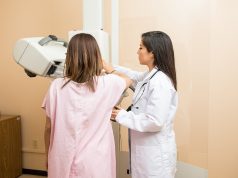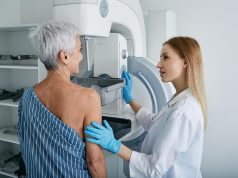Findings seen among people with high-risk nonmetastatic breast cancer at a median 33.8 months
By Lori Solomon HealthDay Reporter
FRIDAY, May 3, 2024 (HealthDay News) — Among participants with high-risk nonmetastatic breast cancer, daily aspirin use did not improve the risk for breast cancer recurrence or survival in early follow-up, according to a study published online April 29 in the Journal of the American Medical Association.
Wendy Y. Chen, M.D., from the Dana-Farber Cancer Institute in Boston, and colleagues evaluated whether aspirin decreases the risk for invasive cancer events among survivors of breast cancer. The analysis included 3,020 participants with high-risk nonmetastatic breast cancer, enrolled at 534 sites from Jan. 6, 2017, through Dec. 4, 2020, with follow-up to March 4, 2023.
The researchers reported that the Alliance Data and Safety Monitoring Committee recommended suspending the study at the first interim analysis because the hazard ratio had crossed the prespecified futility boundary. At median follow-up of 33.8 months, 253 invasive disease-free survival events occurred (141 in the aspirin group and 112 in the placebo group), yielding a hazard ratio of 1.27 (95 percent confidence interval [CI], 0.99 to 1.63; P = 0.06). The aspirin group had higher numbers of all-invasive, disease-free survival events, including death, invasive progression (both distant and locoregional), and new primary events, although the differences were not statistically significant. Overall survival showed no difference between the groups (hazard ratio, 1.19; 95 percent CI, 0.82 to 1.72). The groups also had similar rates of grades 3 and 4 adverse events.
“Despite its promise and wide availability, aspirin should not be recommended as an adjuvant breast cancer treatment,” the authors write.
Two authors disclosed ties to the pharmaceutical industry.
Editorial (subscription or payment may be required)
Copyright © 2024 HealthDay. All rights reserved.








